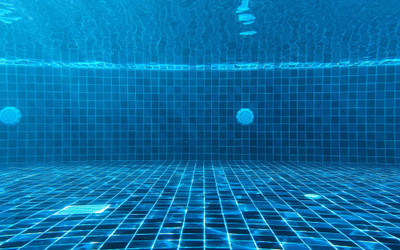We Debunked These Popular Swimming Pool Myths
2nd Aug 2023
When you were a kid, a fun day at the beach or pool could come skidding to a halt when mom warned: “Don’t go in the water. You just ate!”
The need to wait an hour after eating to go back in the water is a well known “pool rule.” Anyone who broke this rule was certain to drown after experiencing extreme stomach cramps. Sounds terrifying, right? Fortunately, it isn’t true, according to the New York Daily News.
How did this myth begin? Blame it on the Boy Scouts! Apparently, both British and American Boy Scout Handbooks written in the first decade of the 20th century cautioned against swimming right after eating. Ignore the rule and your death by drowning “will be your own fault,” according to the British 1908 edition of Scouting for Boys.
Thankfully, health experts assure us this precaution is just an old wives’ tale. But it makes you wonder about other swimming pool myths and facts.
We’ve identified five additional commonly-held beliefs about swimming pools. We hope debunking these myths encourages consistent, effective pool maintenance so you can enjoy your backyard swimming pool even more!

1. Too much chlorine gives swimmers red eyes.
It isn’t actually the chlorine itself that causes eye irritation. The culprit is chloramines that form when chlorine reacts with organic matter in the pool water.
To prevent red eyes from swimming, keep up with your swimming pool maintenance. Maintaining a pH level between 7.2 and 7.6 should help prevent stinging, bloodshot eyes when you swim.
2. You can buy chemicals that detect pee in the pool.
You may remember warnings that a red or blue ring would form around any person who urinated in a swimming pool. You may even have heard school friends swear they once witnessed such an occurrence, to the culprit’s everlasting shame.
Actually, there is no chemical or pool additive that will turn color if someone starts peeing in the pool, says ThoughtCo. Some dyes will turn cloudy or change color in response to certain compounds. However, the reaction would not be exclusive to urine and potential false readings would be very embarrassing.
3. Chlorine turns your hair green.
There’s no doubt that some frequent swimmers end up with “swimmers’ hair.” Blondes are especially susceptible to developing green hair from swimming. However, chlorine isn’t the culprit – it’s copper, according to My Hair Doctor. Copper is common in well water and some algaecides. The copper reacts with chlorine, then binds to the proteins in your hair, creating a green tint.
To prevent this from happening, avoid using copper-based algaecides and test to see if your pool water contains metals. Use a metal eliminator in your pool to remove the copper. You can also protect your hair by using a leave-in conditioner before swimming and washing your hair after swimming.
 4. If your pool smells like bleach, there’s too much chlorine in it.
4. If your pool smells like bleach, there’s too much chlorine in it.
Actually, chlorine is odorless. So, if your pool smells like bleach, you might need to add more chlorine to the water.
That may sound backwards, but the smell we associate with chlorine comes from chloramines. These are compounds formed as chlorine neutralizes things like sweat, dirt, deodorant, skin cells and urine in your pool water.
A bleachy smell means your chlorine additive has been working hard cleaning your pool water of impurities and could be depleted. Test your chlorine levels and make the necessary chemical adjustments.
5. Clear pool water is clean pool water.
Not necessarily. You can’t see bacteria and other harmful organisms in a swimming pool, but that doesn’t mean they aren’t there.
The CDC notes that billions of microbes travel into the swimming pool on the skin, hands and hair of each swimmer. That’s one of the reasons swimmers are encouraged to shower before and after jumping in the pool.
To minimize bacteria levels in your pool water, regularly test and balance your pool chemicals. Your pool will be crystal clear and safer to enjoy!
Keeping your pool clean requires effort, but it is well worth your time. And now that you know that balancing your pool water can reduce the chances of red eyes, green hair and a bleachy smell, you can understand how good pool maintenance can bust persistent swimming pool myths.
You may also like:
When, Why and How to Give Your Pool a Shock Treatment
4 Things to Know Before Letting Your Dog in the Pool
